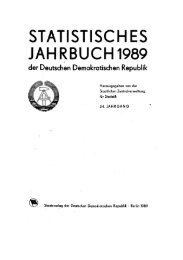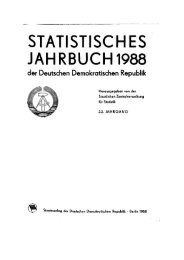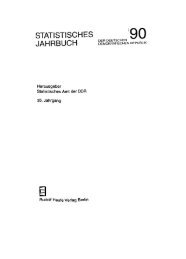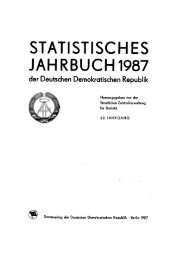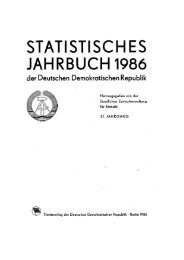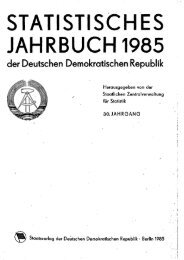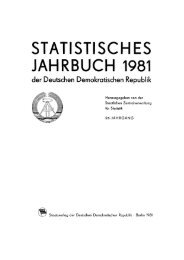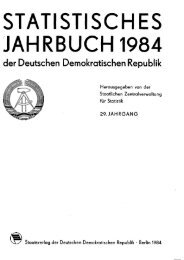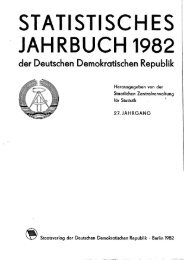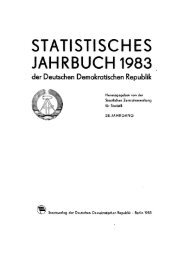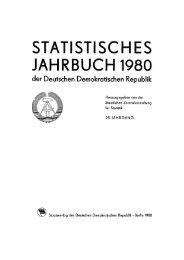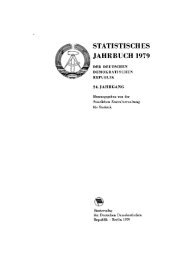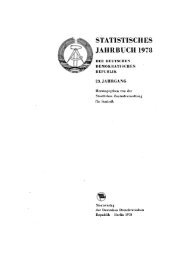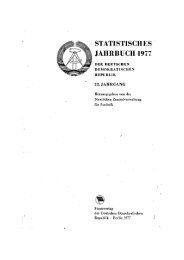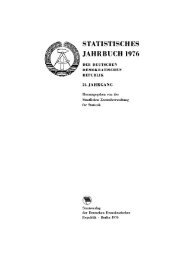- Page 1 and 2: Britain Handbook 2000 final HB 22/1
- Page 3 and 4: Major Conservation and Recreation A
- Page 5 and 6: Published with the permission of th
- Page 7 and 8: Appendix 1: Government Departments
- Page 9 and 10: Abbeys and Priories: p. 1, English
- Page 11 and 12: BRITAIN 2000 been used in the compi
- Page 13 and 14: BRITAIN 2000 ‘Skyscape’ will co
- Page 15 and 16: BRITAIN 2000 create a community-led
- Page 17 and 18: BRITAIN AND ITS PEOPLE Table 1.1: A
- Page 19 and 20: BRITAIN AND ITS PEOPLE 2050s compar
- Page 21 and 22: THE UNION FLAG The flag of the Unit
- Page 23 and 24: INTRODUCTION 860s: Danes overrun Ea
- Page 25 and 26: BRITAIN AND ITS PEOPLE 2 England Ea
- Page 27 and 28: ENGLAND responsible for its central
- Page 29 and 30: ENGLAND Regional Development Agenci
- Page 31 and 32: BRITAIN AND ITS PEOPLE 3 Northern I
- Page 33 and 34: NORTHERN IRELAND operations against
- Page 35 and 36: NORTHERN IRELAND Good Friday Agreem
- Page 37 and 38: NORTHERN IRELAND Commission, the Co
- Page 39 and 40: BRITAIN AND ITS PEOPLE 4 Scotland E
- Page 41: SCOTLAND Scotland: Scotland: Counci
- Page 45 and 46: BRITAIN AND ITS PEOPLE 5 Wales Earl
- Page 47 and 48: WALES Wales: Wales: Unitary Unitary
- Page 49 and 50: WALES the UK average. Wales is an i
- Page 51 and 52: GOVERNMENT AND FOREIGN AFFAIRS 6 Go
- Page 53 and 54: GOVERNMENT Human Rights Act 1998 Th
- Page 55 and 56: GOVERNMENT Queen. The constitution
- Page 57 and 58: GOVERNMENT although the Council ret
- Page 59 and 60: GOVERNMENT and about 146 in the Hou
- Page 61 and 62: GOVERNMENT supplement for London me
- Page 63 and 64: GOVERNMENT formed in the early part
- Page 65 and 66: GOVERNMENT without expressing an op
- Page 67 and 68: GOVERNMENT one month of being sent
- Page 69 and 70: GOVERNMENT and Privileges, and Euro
- Page 71 and 72: GOVERNMENT wishes to take evidence.
- Page 73 and 74: GOVERNMENT The Leader of the Opposi
- Page 75 and 76: GOVERNMENT There are two main categ
- Page 77 and 78: GOVERNMENT ● National Health Serv
- Page 79 and 80: GOVERNMENT employed in the Ministry
- Page 81 and 82: GOVERNMENT White Papers contained p
- Page 83 and 84: GOVERNMENT County, district and uni
- Page 85 and 86: GOVERNMENT appointments are made by
- Page 87 and 88: GOVERNMENT about an issue—for exa
- Page 89 and 90: GOVERNMENT Further Reading Committe
- Page 91 and 92: OVERSEAS RELATIONS The European Uni
- Page 95 and 96:
GOVERNMENT AND FOREIGN AFFAIRS Repu
- Page 97 and 98:
GOVERNMENT AND FOREIGN AFFAIRS The
- Page 99 and 100:
GOVERNMENT AND FOREIGN AFFAIRS (For
- Page 101 and 102:
GOVERNMENT AND FOREIGN AFFAIRS tran
- Page 103 and 104:
GOVERNMENT AND FOREIGN AFFAIRS stra
- Page 105 and 106:
GOVERNMENT AND FOREIGN AFFAIRS Gulf
- Page 107 and 108:
GOVERNMENT AND FOREIGN AFFAIRS the
- Page 109 and 110:
GOVERNMENT AND FOREIGN AFFAIRS Repr
- Page 111 and 112:
GOVERNMENT AND FOREIGN AFFAIRS of c
- Page 113 and 114:
GOVERNMENT AND FOREIGN AFFAIRS DFID
- Page 115 and 116:
GOVERNMENT AND FOREIGN AFFAIRS econ
- Page 117 and 118:
GOVERNMENT AND FOREIGN AFFAIRS 8 De
- Page 119 and 120:
GOVERNMENT AND FOREIGN AFFAIRS the
- Page 121 and 122:
GOVERNMENT AND FOREIGN AFFAIRS or h
- Page 123 and 124:
GOVERNMENT AND FOREIGN AFFAIRS ●
- Page 125 and 126:
GOVERNMENT AND FOREIGN AFFAIRS Equa
- Page 127 and 128:
SOCIAL AND CULTURAL AFFAIRS UK Popu
- Page 129 and 130:
SOCIAL AND CULTURAL AFFAIRS Table 9
- Page 131 and 132:
SOCIAL AND CULTURAL AFFAIRS With th
- Page 133 and 134:
SOCIAL AND CULTURAL AFFAIRS British
- Page 135 and 136:
SOCIAL AND CULTURAL AFFAIRS such ma
- Page 137 and 138:
SOCIAL AND CULTURAL AFFAIRS the Bri
- Page 139 and 140:
SOCIAL AND CULTURAL AFFAIRS unlawfu
- Page 141 and 142:
SOCIAL AND CULTURAL AFFAIRS househo
- Page 143 and 144:
SOCIAL AND CULTURAL AFFAIRS 10 Educ
- Page 145 and 146:
SOCIAL AND CULTURAL AFFAIRS codes r
- Page 147 and 148:
SOCIAL AND CULTURAL AFFAIRS should
- Page 149 and 150:
SOCIAL AND CULTURAL AFFAIRS From Se
- Page 151 and 152:
SOCIAL AND CULTURAL AFFAIRS Table 1
- Page 153 and 154:
SOCIAL AND CULTURAL AFFAIRS ● mai
- Page 155 and 156:
SOCIAL AND CULTURAL AFFAIRS the end
- Page 157 and 158:
SOCIAL AND CULTURAL AFFAIRS curricu
- Page 159 and 160:
SOCIAL AND CULTURAL AFFAIRS Scotlan
- Page 161 and 162:
SOCIAL AND CULTURAL AFFAIRS to brin
- Page 163 and 164:
SOCIAL AND CULTURAL AFFAIRS recreat
- Page 165 and 166:
SOCIAL AND CULTURAL AFFAIRS 11 The
- Page 167 and 168:
SOCIAL AND CULTURAL AFFAIRS Table 1
- Page 169 and 170:
SOCIAL AND CULTURAL AFFAIRS ● ●
- Page 171 and 172:
SOCIAL AND CULTURAL AFFAIRS ● ●
- Page 173 and 174:
SOCIAL AND CULTURAL AFFAIRS relativ
- Page 175 and 176:
SOCIAL AND CULTURAL AFFAIRS employm
- Page 177 and 178:
SOCIAL AND CULTURAL AFFAIRS collect
- Page 179 and 180:
SOCIAL AND CULTURAL AFFAIRS that a
- Page 181 and 182:
SOCIAL AND CULTURAL AFFAIRS co-oper
- Page 183 and 184:
SOCIAL AND CULTURAL AFFAIRS 12 Soci
- Page 185 and 186:
SOCIAL AND CULTURAL AFFAIRS As part
- Page 187 and 188:
SOCIAL AND CULTURAL AFFAIRS Help to
- Page 189 and 190:
SOCIAL AND CULTURAL AFFAIRS Local A
- Page 191 and 192:
SOCIAL AND CULTURAL AFFAIRS but lat
- Page 193 and 194:
SOCIAL AND CULTURAL AFFAIRS Table 1
- Page 195 and 196:
SOCIAL AND CULTURAL AFFAIRS over),
- Page 197 and 198:
SOCIAL AND CULTURAL AFFAIRS Decisio
- Page 199 and 200:
SOCIAL AND CULTURAL AFFAIRS employe
- Page 201 and 202:
SOCIAL AND CULTURAL AFFAIRS Table 1
- Page 203 and 204:
SOCIAL AND CULTURAL AFFAIRS 13 Heal
- Page 205 and 206:
SOCIAL AND CULTURAL AFFAIRS Alongsi
- Page 207 and 208:
SOCIAL AND CULTURAL AFFAIRS managem
- Page 209 and 210:
SOCIAL AND CULTURAL AFFAIRS NHS Dir
- Page 211 and 212:
SOCIAL AND CULTURAL AFFAIRS Health
- Page 213 and 214:
SOCIAL AND CULTURAL AFFAIRS The Gov
- Page 215 and 216:
SOCIAL AND CULTURAL AFFAIRS Hospita
- Page 217 and 218:
SOCIAL AND CULTURAL AFFAIRS Health
- Page 219 and 220:
SOCIAL AND CULTURAL AFFAIRS 1997, t
- Page 221 and 222:
SOCIAL AND CULTURAL AFFAIRS organis
- Page 223 and 224:
SOCIAL AND CULTURAL AFFAIRS Some £
- Page 225 and 226:
SOCIAL AND CULTURAL AFFAIRS governm
- Page 227 and 228:
SOCIAL AND CULTURAL AFFAIRS Optomet
- Page 229 and 230:
SOCIAL AND CULTURAL AFFAIRS 14 Crim
- Page 231 and 232:
SOCIAL AND CULTURAL AFFAIRS The Hum
- Page 233 and 234:
SOCIAL AND CULTURAL AFFAIRS The fol
- Page 235 and 236:
SOCIAL AND CULTURAL AFFAIRS ● pro
- Page 237 and 238:
SOCIAL AND CULTURAL AFFAIRS technol
- Page 239 and 240:
SOCIAL AND CULTURAL AFFAIRS arrange
- Page 241 and 242:
SOCIAL AND CULTURAL AFFAIRS Structu
- Page 243 and 244:
SOCIAL AND CULTURAL AFFAIRS general
- Page 245 and 246:
SOCIAL AND CULTURAL AFFAIRS Disorde
- Page 247 and 248:
SOCIAL AND CULTURAL AFFAIRS The Civ
- Page 249 and 250:
SOCIAL AND CULTURAL AFFAIRS Appeals
- Page 251 and 252:
SOCIAL AND CULTURAL AFFAIRS The Cou
- Page 253 and 254:
SOCIAL AND CULTURAL AFFAIRS Prison
- Page 255 and 256:
SOCIAL AND CULTURAL AFFAIRS Legal A
- Page 257 and 258:
SOCIAL AND CULTURAL AFFAIRS 15 Reli
- Page 259 and 260:
SOCIAL AND CULTURAL AFFAIRS manages
- Page 261 and 262:
SOCIAL AND CULTURAL AFFAIRS there i
- Page 263 and 264:
SOCIAL AND CULTURAL AFFAIRS The Fre
- Page 265 and 266:
SOCIAL AND CULTURAL AFFAIRS gurdwar
- Page 267 and 268:
SOCIAL AND CULTURAL AFFAIRS share o
- Page 269 and 270:
SOCIAL AND CULTURAL AFFAIRS public
- Page 271 and 272:
SOCIAL AND CULTURAL AFFAIRS Marriag
- Page 273 and 274:
SOCIAL AND CULTURAL AFFAIRS directi
- Page 275 and 276:
SOCIAL AND CULTURAL AFFAIRS Oxford.
- Page 277 and 278:
SOCIAL AND CULTURAL AFFAIRS perform
- Page 279 and 280:
SOCIAL AND CULTURAL AFFAIRS The Eur
- Page 281 and 282:
SOCIAL AND CULTURAL AFFAIRS Two eve
- Page 283 and 284:
SOCIAL AND CULTURAL AFFAIRS the fir
- Page 285 and 286:
SOCIAL AND CULTURAL AFFAIRS number
- Page 287 and 288:
SOCIAL AND CULTURAL AFFAIRS Among t
- Page 289 and 290:
SOCIAL AND CULTURAL AFFAIRS Satelli
- Page 291 and 292:
SOCIAL AND CULTURAL AFFAIRS ● int
- Page 293 and 294:
SOCIAL AND CULTURAL AFFAIRS and Man
- Page 295 and 296:
SOCIAL AND CULTURAL AFFAIRS and tec
- Page 297 and 298:
SOCIAL AND CULTURAL AFFAIRS TELETEX
- Page 299 and 300:
SOCIAL AND CULTURAL AFFAIRS also co
- Page 301 and 302:
SOCIAL AND CULTURAL AFFAIRS non-par
- Page 303 and 304:
SOCIAL AND CULTURAL AFFAIRS Ethnic
- Page 305 and 306:
SOCIAL AND CULTURAL AFFAIRS PRESS C
- Page 307 and 308:
SOCIAL AND CULTURAL AFFAIRS Further
- Page 309 and 310:
SOCIAL AND CULTURAL AFFAIRS Table 1
- Page 311 and 312:
SOCIAL AND CULTURAL AFFAIRS to the
- Page 313 and 314:
SOCIAL AND CULTURAL AFFAIRS Sports
- Page 315 and 316:
SOCIAL AND CULTURAL AFFAIRS ● Cry
- Page 317 and 318:
SOCIAL AND CULTURAL AFFAIRS sportsw
- Page 319 and 320:
SOCIAL AND CULTURAL AFFAIRS cross c
- Page 321 and 322:
SOCIAL AND CULTURAL AFFAIRS number
- Page 323 and 324:
SOCIAL AND CULTURAL AFFAIRS Scottis
- Page 325 and 326:
SOCIAL AND CULTURAL AFFAIRS Ice Hoc
- Page 327 and 328:
SOCIAL AND CULTURAL AFFAIRS Sixteen
- Page 329 and 330:
SOCIAL AND CULTURAL AFFAIRS Yachtin
- Page 331 and 332:
THE ENVIRONMENT AND TRANSPORT of th
- Page 333 and 334:
THE ENVIRONMENT AND TRANSPORT advis
- Page 335 and 336:
THE ENVIRONMENT AND TRANSPORT of be
- Page 337 and 338:
THE ENVIRONMENT AND TRANSPORT place
- Page 339 and 340:
THE ENVIRONMENT AND TRANSPORT Vario
- Page 341 and 342:
THE ENVIRONMENT AND TRANSPORT Wales
- Page 343 and 344:
THE ENVIRONMENT AND TRANSPORT Popul
- Page 345 and 346:
THE ENVIRONMENT AND TRANSPORT with
- Page 347 and 348:
THE ENVIRONMENT AND TRANSPORT Table
- Page 349 and 350:
THE ENVIRONMENT AND TRANSPORT autho
- Page 351 and 352:
THE ENVIRONMENT AND TRANSPORT from
- Page 353 and 354:
THE ENVIRONMENT AND TRANSPORT A rec
- Page 355 and 356:
THE ENVIRONMENT AND TRANSPORT Emiss
- Page 357 and 358:
THE ENVIRONMENT AND TRANSPORT Earth
- Page 359 and 360:
THE ENVIRONMENT AND TRANSPORT radio
- Page 361 and 362:
THE ENVIRONMENT AND TRANSPORT 21 Pl
- Page 363 and 364:
THE ENVIRONMENT AND TRANSPORT Brown
- Page 365 and 366:
THE ENVIRONMENT AND TRANSPORT them
- Page 367 and 368:
THE ENVIRONMENT AND TRANSPORT relie
- Page 369 and 370:
THE ENVIRONMENT AND TRANSPORT Type
- Page 371 and 372:
THE ENVIRONMENT AND TRANSPORT 350,0
- Page 373 and 374:
THE ENVIRONMENT AND TRANSPORT priva
- Page 375 and 376:
THE ENVIRONMENT AND TRANSPORT which
- Page 377 and 378:
THE ENVIRONMENT AND TRANSPORT secur
- Page 379 and 380:
THE ENVIRONMENT AND TRANSPORT 22 Tr
- Page 381 and 382:
THE ENVIRONMENT AND TRANSPORT Local
- Page 383 and 384:
THE ENVIRONMENT AND TRANSPORT Table
- Page 385 and 386:
THE ENVIRONMENT AND TRANSPORT autho
- Page 387 and 388:
THE ENVIRONMENT AND TRANSPORT ●
- Page 389 and 390:
THE ENVIRONMENT AND TRANSPORT Heath
- Page 391 and 392:
THE ENVIRONMENT AND TRANSPORT loop
- Page 393 and 394:
THE ENVIRONMENT AND TRANSPORT shipp
- Page 395 and 396:
THE ENVIRONMENT AND TRANSPORT Table
- Page 397 and 398:
THE ENVIRONMENT AND TRANSPORT opera
- Page 399 and 400:
THE ENVIRONMENT AND TRANSPORT ● E
- Page 401 and 402:
ECONOMIC AFFAIRS 23 The Economy Str
- Page 403 and 404:
ECONOMIC AFFAIRS Table 23.2: Output
- Page 405 and 406:
ECONOMIC AFFAIRS Small firms play a
- Page 407 and 408:
ECONOMIC AFFAIRS of goods in 1998 a
- Page 409 and 410:
ECONOMIC AFFAIRS ● to create stro
- Page 411 and 412:
ECONOMIC AFFAIRS Millennium Product
- Page 413 and 414:
ECONOMIC AFFAIRS jobs, while new me
- Page 415 and 416:
ECONOMIC AFFAIRS within the UK and
- Page 417 and 418:
ECONOMIC AFFAIRS number of small bu
- Page 419 and 420:
ECONOMIC AFFAIRS 24 Public Finance
- Page 421 and 422:
ECONOMIC AFFAIRS Following the Gove
- Page 423 and 424:
ECONOMIC AFFAIRS efficiency and qua
- Page 425 and 426:
ECONOMIC AFFAIRS Protecting the Env
- Page 427 and 428:
ECONOMIC AFFAIRS Table 24.3: Tax Ba
- Page 429 and 430:
ECONOMIC AFFAIRS according to alcoh
- Page 431 and 432:
ECONOMIC AFFAIRS 25 Overseas Trade
- Page 433 and 434:
ECONOMIC AFFAIRS UK Balance of Paym
- Page 435 and 436:
ECONOMIC AFFAIRS Table 25.3: Commod
- Page 437 and 438:
ECONOMIC AFFAIRS Table 25.6: Trade
- Page 439 and 440:
ECONOMIC AFFAIRS formation of the W
- Page 441 and 442:
OVERSEAS TRADE AND INVESTMENT Conve
- Page 443 and 444:
OVERSEAS TRADE AND INVESTMENT devel
- Page 445 and 446:
SCIENCE, ENGINEERING AND TECHNOLOGY
- Page 447 and 448:
SCIENCE, ENGINEERING AND TECHNOLOGY
- Page 449 and 450:
SCIENCE, ENGINEERING AND TECHNOLOGY
- Page 451 and 452:
SCIENCE, ENGINEERING AND TECHNOLOGY
- Page 453 and 454:
SCIENCE, ENGINEERING AND TECHNOLOGY
- Page 455 and 456:
SCIENCE, ENGINEERING AND TECHNOLOGY
- Page 457 and 458:
SCIENCE, ENGINEERING AND TECHNOLOGY
- Page 459 and 460:
SCIENCE, ENGINEERING AND TECHNOLOGY
- Page 461 and 462:
SCIENCE, ENGINEERING AND TECHNOLOGY
- Page 463 and 464:
ECONOMIC AFFAIRS 27 Agriculture, Fi
- Page 465 and 466:
AGRICULTURE, FISHING & FORESTRY Agr
- Page 467 and 468:
AGRICULTURE, FISHING & FORESTRY Tab
- Page 469 and 470:
AGRICULTURE, FISHING & FORESTRY vet
- Page 471 and 472:
AGRICULTURE, FISHING & FORESTRY ind
- Page 473 and 474:
AGRICULTURE, FISHING & FORESTRY org
- Page 475 and 476:
AGRICULTURE, FISHING & FORESTRY cou
- Page 477 and 478:
AGRICULTURE, FISHING & FORESTRY Thi
- Page 479 and 480:
AGRICULTURE, FISHING & FORESTRY tho
- Page 481 and 482:
AGRICULTURE, FISHING & FORESTRY Fis
- Page 483 and 484:
AGRICULTURE, FISHING & FORESTRY Wal
- Page 485 and 486:
AGRICULTURE, FISHING & FORESTRY Com
- Page 487 and 488:
MANUFACTURING AND CONSTRUCTION The
- Page 489 and 490:
MANUFACTURING AND CONSTRUCTION incl
- Page 491 and 492:
MANUFACTURING AND CONSTRUCTION Text
- Page 493 and 494:
MANUFACTURING AND CONSTRUCTION sect
- Page 495 and 496:
MANUFACTURING AND CONSTRUCTION Rubb
- Page 497 and 498:
MANUFACTURING AND CONSTRUCTION wire
- Page 499 and 500:
MANUFACTURING AND CONSTRUCTION and
- Page 501 and 502:
MANUFACTURING AND CONSTRUCTION Vaux
- Page 503 and 504:
MANUFACTURING AND CONSTRUCTION airl
- Page 505 and 506:
MANUFACTURING AND CONSTRUCTION numb
- Page 507 and 508:
ECONOMIC AFFAIRS 29 Energy and Natu
- Page 509 and 510:
ENERGY AND NATURAL RESOURCES Table
- Page 511 and 512:
ENERGY AND NATURAL RESOURCES Table
- Page 513 and 514:
ENERGY AND NATURAL RESOURCES Univer
- Page 515 and 516:
ENERGY AND NATURAL RESOURCES Market
- Page 517 and 518:
ENERGY AND NATURAL RESOURCES Genera
- Page 519 and 520:
ENERGY AND NATURAL RESOURCES Europe
- Page 521 and 522:
ENERGY AND NATURAL RESOURCES their
- Page 523 and 524:
ENERGY AND NATURAL RESOURCES Value
- Page 525 and 526:
ENERGY AND NATURAL RESOURCES All th
- Page 527 and 528:
FINANCE AND OTHER SERVICE INDUSTRIE
- Page 529 and 530:
FINANCE AND OTHER SERVICE INDUSTRIE
- Page 531 and 532:
FINANCE AND OTHER SERVICE INDUSTRIE
- Page 533 and 534:
FINANCE AND OTHER SERVICE INDUSTRIE
- Page 535 and 536:
FINANCE AND OTHER SERVICE INDUSTRIE
- Page 537 and 538:
FINANCE AND OTHER SERVICE INDUSTRIE
- Page 539 and 540:
FINANCE AND OTHER SERVICE INDUSTRIE
- Page 541 and 542:
FINANCE AND OTHER SERVICE INDUSTRIE
- Page 543 and 544:
FINANCE AND OTHER SERVICE INDUSTRIE
- Page 545 and 546:
FINANCE AND OTHER SERVICE INDUSTRIE
- Page 547 and 548:
FINANCE AND OTHER SERVICE INDUSTRIE
- Page 549 and 550:
FINANCE AND OTHER SERVICE INDUSTRIE
- Page 551 and 552:
APPENDICES Appendix 1: Government D
- Page 553 and 554:
APPENDIX 1 Royal Mint Llantrisant,
- Page 555 and 556:
APPENDIX 1 Executive Agencies Drive
- Page 557 and 558:
APPENDIX 1 Public Record Office Rus
- Page 559 and 560:
APPENDIX 1 libraries; museums; gall
- Page 561 and 562:
APPENDIX 2 Iain Crichton Smith, OBE
- Page 563 and 564:
APPENDIX 2 Sir William Mars-Jones,
- Page 565 and 566:
APPENDIX 3 Appendix 3: Principal Ab
- Page 567 and 568:
APPENDICES 3, 4 & 5 SVQ: Scottish V
- Page 569 and 570:
Index A Aberdeen 21, 22, 64, 344, 3
- Page 571 and 572:
INDEX Channel Islands 1-3, 17, 35,
- Page 573 and 574:
INDEX Education 24, 26, 95, 96-7, 1
- Page 575 and 576:
INDEX Government Property Lawyers 5
- Page 577 and 578:
INDEX Local Enterprise Companies 15
- Page 579 and 580:
INDEX Education 20, 124, 135, 140,
- Page 581 and 582:
INDEX Royal Military Academy, Sandh
- Page 583 and 584:
INDEX exports 270 independent 32, 2
- Page 585 and 586:
Passenger Railway Network in the UK



